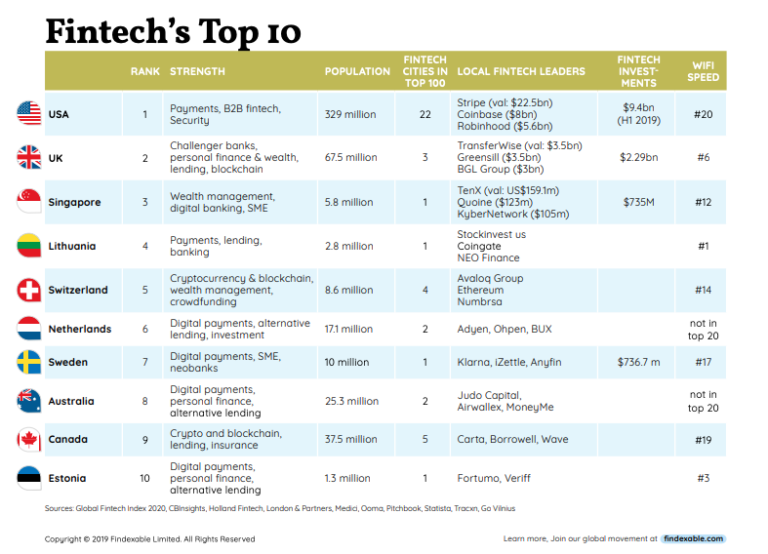What Is The Future Of AI In Insurance?
The future of Artificial Intelligence (AI) in insurance is very promising and could have a big impact on the industry. AI has already been used in the insurance sector to improve customer experience, provide data-driven insights, and automate many tedious and time-consuming tasks. As AI technology continues to evolve and become more sophisticated, insurance companies will be able to create more personalized products and services tailored to their customers’ needs. AI can also be used to accurately predict potential risks and to develop more accurate pricing models. AI can also help insurance companies identify fraudulent claims and prevent losses. Overall, the future of AI in insurance is very exciting and has the potential to reshape the industry in a positive way.
Overview of AI in Insurance
Insurance is an industry that has seen significant changes in recent years due to the introduction of Artificial Intelligence (AI). AI has revolutionized the way in which insurers process and manage data, and it is now being used to automate processes and decision making in the insurance industry. From using machine learning algorithms to predict customer behavior and detect fraud, to utilizing natural language processing (NLP) to interact with customers, AI is transforming the industry and pushing it into the future.
AI is being used to automate underwriting processes and make more accurate predictions about customer behavior, leading to more accurate pricing and risk assessment. Additionally, AI is helping insurers better understand customer needs and preferences, allowing them to offer more tailored products and services. AI-driven chatbots are also being used to provide customers with personalized advice and support.
In the future, AI is expected to play an even larger role in the insurance industry, with the potential to drive cost savings and efficiency gains, while also providing customers with a better experience. AI-based solutions will continue to be developed and used to automate processes, identify trends, and make more accurate predictions. In the future, AI could also enable insurers to become more proactive and provide customers with personalized services and advice.
Types of AI Used in Insurance
As Artificial Intelligence (AI) continues to revolutionize the way businesses operate, the insurance industry is no exception. AI is increasingly being used to improve customer experience, automate processes, and increase efficiency. AI can be used in various ways to provide the insurance industry with better customer insight, improved risk management, and streamlined claims processes. This article will take a look at the types of AI used in insurance and the potential benefits of these technologies.
Insurance companies are using AI in a variety of ways ranging from natural language processing (NLP) to predictive analytics. NLP is used to quickly process customer inquiries and feedback in order to provide a more personal response. Predictive analytics, on the other hand, uses historical data to forecast trends and anticipate customer behavior. AI can also be used to detect fraud and accurately price risk.
AI-powered chatbots are becoming increasingly popular in the insurance industry because of their ability to provide customers with quick and easy answers to their questions. AI can also be used to automate customer service tasks such as account opening, policy renewal, and customer inquiries. AI-powered virtual assistants can help customers find the best deals for their insurance policies.
Finally, AI can be used to improve the accuracy and speed of underwriting processes. AI-powered systems can analyze vast amounts of data to accurately assess risk and provide personalized quotes. AI can also be used to detect and prevent fraud, which can save insurance companies time and money.
In conclusion, AI has the potential to revolutionize the insurance industry with its ability to automate processes, improve customer service, and accurately assess risk. As AI technology continues to advance, it will be interesting to see the ways in which it is used in the insurance industry.
Benefits of AI in Insurance
As Artificial Intelligence (AI) rapidly develops, its potential applications in the insurance sector have become increasingly apparent. AI has the ability to enable insurers to better understand customers, provide more accurate risk assessments, and automate processes, while also providing improved customer experiences. AI can also help insurers to identify and predict fraud, streamline claims processing, and reduce manual work.
AI-driven insurance products are gaining traction as insurers are beginning to understand the potential of using AI to improve customer experience and increase efficiency. AI-driven solutions are now being used to generate more accurate quotes based on customer data, as well as to recommend policies to customers based on their individual needs. AI can also help insurers to better identify and assess risks, allowing them to offer more competitive premiums.
In addition, AI can be used to automate the claims process, allowing for faster and more accurate processing. AI can also help insurers to identify and predict fraud, allowing them to better protect their customers and reduce losses. Finally, AI can be used to improve customer service, allowing insurers to provide more personalized experiences to customers.
Ultimately, the future of AI in insurance looks bright. As AI continues to develop and become more powerful, it has the potential to revolutionize the insurance industry and provide insurers with a wide range of benefits. By leveraging AI, insurers can better understand their customers, reduce costs, and provide improved customer experiences.

Challenges of AI in Insurance
The potential of Artificial Intelligence (AI) to transform the insurance industry is immense. However, the utilization of AI in insurance comes with its own set of challenges. As AI technology continues to develop, insurance companies need to be aware of the potential risks and benefits that AI brings to the industry.
One major challenge of AI in insurance is the need to ensure that decisions made by AI are fair and ethical. AI algorithms can be trained to detect patterns, but they may not always be free of bias. Insurance companies must ensure that AI-driven decision making is aligned with ethical principles and industry regulations.
Another challenge is the cost associated with using AI. AI technology is expensive and requires a lot of resources to implement. It is important for insurance companies to consider the cost of using AI carefully before investing in the technology.
Finally, insurance companies must also be aware of the potential for data breaches. AI systems require large volumes of data and the collection and storage of this data must be done securely. A breach of data could have serious consequences for the insurance company and its customers.
Overall, AI has the potential to revolutionize the insurance industry, but it is important for insurance companies to be aware of the challenges associated with the technology. Companies must ensure that AI-driven decisions are fair and ethical, that the cost of implementation is manageable, and that data security is a priority.
AI in Insurance Use Cases
The use cases of AI in insurance are increasingly becoming more advanced. AI is being used to analyze data, create predictive models, and identify patterns that can be used to reduce risk and improve customer engagement. AI can help insurance companies provide more accurate and personalized services to their customers, as well as identify fraud faster and more efficiently. Furthermore, AI can help automate the claims process, making it easier for customers to file and receive their claims. AI can also be used to analyze customer behavioral data to provide tailored services and create more personalized experiences for customers. With the increasing use of AI, insurance companies are able to improve their operational efficiency and reduce costs. In the future, AI will continue to be a key factor in the insurance industry, allowing insurance companies to better serve their customers.
Outlook for AI in Insurance
AI in insurance has the potential to revolutionize the industry, and many experts believe that it will be the driving force behind digital transformation in the insurance sector. AI promises to be an essential tool for insurance companies to improve customer engagement, increase operational efficiency, and reduce costs. AI can be used to automate claims processing and customer service, to analyze customer data to better tailor products and services, and to develop more accurate and predictive risk models. AI also has the potential to revolutionize the way insurers detect and prevent fraud, and to help them identify new opportunities in the market.
As the development and application of AI technology continues to evolve, the insurance industry is likely to see greater automation of manual tasks, improved customer experience, enhanced risk management, and increased efficiency. AI can provide data-driven insights that can help insurers better understand customer needs and improve product offerings. It can also be used to analyze claims data and detect fraud or abuse. Additionally, AI can help insurers better predict and manage risks, identify new opportunities, and improve customer service. AI has the potential to revolutionize the insurance industry and create a more efficient, secure, and customer-centric market.
FAQs About the What Is The Future Of AI In Insurance?
1. What impact will AI have on the insurance industry?
AI is already having a significant impact on the insurance industry. AI technology is being used to automate processes, streamline services, and make data-driven decisions. AI is also being used to detect fraud and provide customer insights. As AI technology improves, it is expected to have an even greater impact on the insurance industry.
2. How will AI change the way insurance companies operate?
AI technology is expected to revolutionize the way insurance companies operate. AI can be used to automate manual processes, automate customer service, detect fraud, and provide personalized services. AI can also be used to analyze customer data and provide insights on customer behavior. This will enable insurance companies to provide more targeted, personalized services to their customers.
3. What are the benefits of using AI in insurance?
AI can bring a number of benefits to the insurance industry. AI can help automate manual processes, streamline services, and detect fraud. AI can also provide customer insights based on customer data. This will enable insurance companies to make data-driven decisions and provide more personalized services to their customers. AI can also help reduce costs and increase efficiency.
Conclusion
The future of AI in insurance is very promising. AI technology has the potential to revolutionize the insurance industry by streamlining processes, providing more accurate risk assessments, and improving customer service. AI can also help insurers to better manage their data and automate tedious tasks. AI-driven insurance products can provide more personalized coverage and better pricing for customers. The future of AI in insurance is very exciting and will likely lead to significant changes in the industry.




